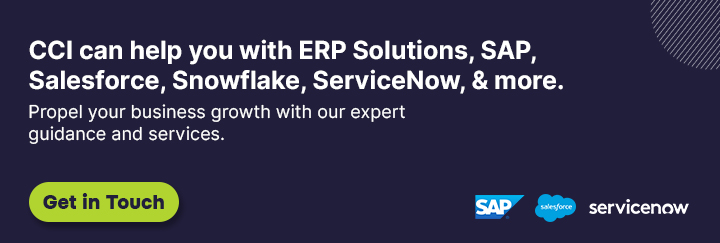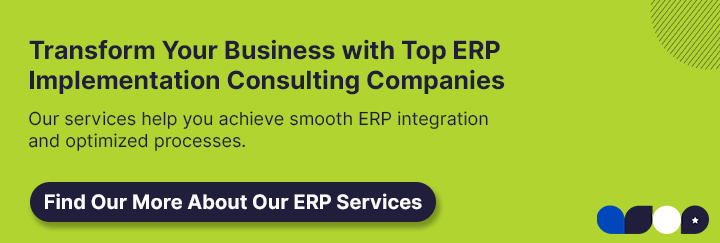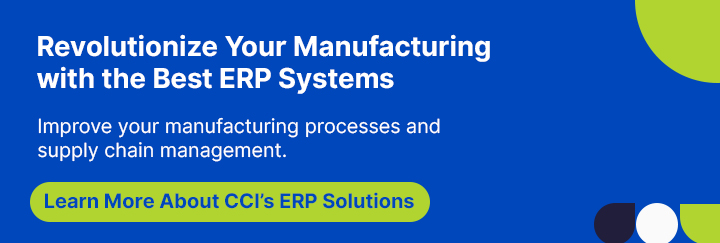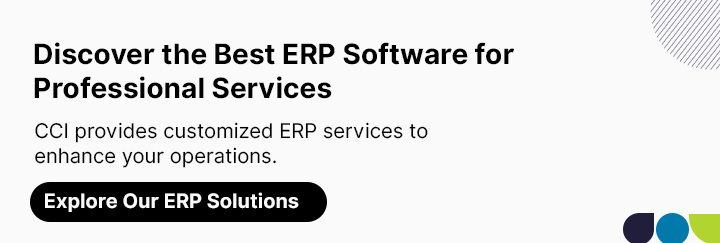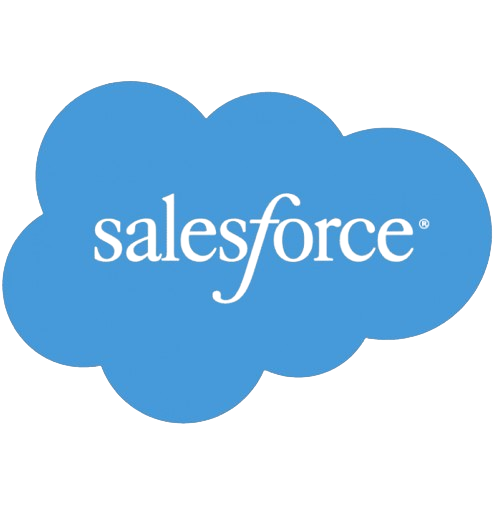Accelerating AI Maturity Through Tailored ERP Solutions in 2026
Updated on March 2, 2026
Artificial intelligence (AI) is reshaping how businesses operate, with 85% of enterprises adopting AI to enhance efficiency and decision-making. However, achieving AI maturity and the ability to leverage AI for strategic outcomes fully requires robust data ecosystems, often anchored by enterprise resource planning (ERP) systems. Poor data integration, cited as a barrier by 60% of organizations in an AI report, hinders progress in AI maturity models. Tailored ERP solutions bridge this gap, unifying data and enabling scalable AI adoption.
What is AI Maturity and Why It Matters
AI maturity refers to an organization’s ability to integrate, operationalize, and scale AI across processes, from basic automation to transformative decision-making. The AI maturity model includes five levels: Initial (ad hoc), Repeatable (basic automation), Defined (process integration), Managed (AI-driven operations), and Optimized (AI-led innovation).
ERP systems like SAP S/4HANA, Salesforce, and Oracle NetSuite provide a unified data foundation critical for AI success. According to a report, organizations with integrated ERP-AI ecosystems see 25% higher operational efficiency and 20% faster decision-making.
>> Related Post: Guide to SAP Implementation Process, Costs, and Best Practices in 2026
The Role of ERP in Accelerating AI Maturity
ERP systems centralize data from finance, supply chain, HR, and customer interactions, creating a single source of truth for AI algorithms. Without clean, accessible data, AI initiatives fail, and AI projects underperform due to poor data quality. Tailored ERP solutions address this by:
- Unifying Data: Consolidating siloed data for AI model training.
- Enabling Automation: Integrating AI tools like SAP’s Joule or Salesforce’s Einstein for predictive analytics.
- Supporting Scalability: Handling growing data volumes as businesses advance through the AI maturity model levels.
>> Related Post: AI in ERP: Key Benefits and Implementation Types
Key Steps to Accelerate AI Maturity with ERP in 2026
Here are the critical steps to advance AI maturity through tailored ERP solutions:
1. Conduct an AI Maturity Assessment
- Overview: Evaluate your current AI maturity level using the AI maturity model. Assess data quality, AI use cases, and ERP readiness.
- Key Activities: Map data sources, identify AI gaps, and benchmark against industry standards.
2. Design a Tailored ERP Architecture
- Overview: Customize ERP systems to support AI use cases like predictive analytics or process automation.
- Key Activities: Configure modules (e.g., SAP S/4HANA Finance) and integrate with AI platforms like Salesforce Einstein or Microsoft Copilot.
3. Cleanse and Unify Data
- Overview: Prepare high-quality data for AI by deduplicating and standardizing ERP data.
- Key Activities: Use tools like SAP Data Services for data cleansing and real-time syncing.
4. Deploy AI Use Cases
- Overview: Implement AI applications, such as demand forecasting or customer segmentation, within ERP workflows.
- Key Activities: Leverage ERP-integrated AI tools (e.g., SAP Joule for supply chain) and test in sandboxes.
5. Scale and Optimize
- Overview: Monitor AI performance and scale ERP infrastructure to support advanced AI maturity levels.
- Key Activities: Use ERP analytics to track KPIs and optimize AI models iteratively.
>> Related Post: Top 10 Emerging Trends of AI in ERP for 2026
Best Practices for Accelerating AI Maturity with ERP
To advance AI maturity through ERP, consider these best practices, grounded in SAP’s 2024 AI Integration Framework and industry insights:
- Begin with an AI Maturity Assessment: Evaluate AI readiness to align ERP investments with business goals, ensuring strategic focus.
- Prioritize Data Quality: Standardize and cleanse ERP data to support reliable AI outcomes, addressing common data challenges.
- Adopt Cloud ERP: Use cloud solutions like SAP S/4HANA for faster, more flexible AI deployment.
- Implement AI Incrementally: Start with targeted use cases like predictive analytics to build confidence and minimize risks.
- Invest in User Training: Provide hands-on training to ensure smooth adoption of AI and ERP tools, fostering user confidence.
- Establish AI Governance: Set policies for AI ethics and compliance with GDPR/CCPA to maintain trust and regulatory adherence.
- Continuously Optimize: Use ERP analytics to monitor AI performance and refine models for ongoing improvement.
>> Related Post: Salesforce Integration with SAP: Key Benefits, Challenges & Best Practices
FAQs
1. What is AI maturity in the context of ERP?
AI maturity reflects a business’s ability to integrate AI into ERP processes, from automation to innovation, per Gartner’s 2024 AI maturity model.
2. What ERP systems support AI maturity in 2026?
SAP S/4HANA, Salesforce, and Oracle NetSuite provide robust data foundations for AI, per Deloitte’s 2026 ERP Trends.
3. How long does it take to advance AI maturity with ERP?
SMBs can reach defined AI maturity in 6-12 months; enterprises take 12-24 months, per Synavos’ 2026 guide.
4. How does cloud ERP accelerate AI maturity?
Cloud solutions like Rise with SAP enable faster AI deployment, supporting scalable AI maturity models.
5. What AI use cases work best with ERP?
Predictive analytics, demand forecasting, and customer segmentation thrive in ERP ecosystems, boosting ROI.
6. How does CCI ensure compliance in AI-ERP projects?
CCI implements GDPR/CCPA-compliant data handling in ERP systems, reducing breach risks.
